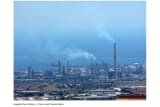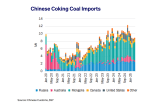Research
08/01/25
Chemicals Update: Mediterranean chemical tanker market may get busier in 2025

Over the past few years, the European petrochemical market has seen major players announce permanent plant closures and other strategic changes due to challenging industry conditions and oversupply. One such announcement came from Italy’s Eni in October 2024, prompting industry players to assess the potential impact on Mediterranean trade, regional shipping, and the European industry overall. Eni’s decision to phase out operations at Versalis’ crackers in Priolo and Brindisi means Italy will no longer have its own ethylene production. The two units have a combined nameplate capacity of nearly one million tons of ethylene per year, along with 625,000 tons per year of pygas. Additionally, the Priolo complex includes an aromatics unit that produces about 400,000 tons of benzene, 170,000 tons of toluene, and 155,000 tons of mixed xylene annually. Two years earlier, Versalis had already stopped another cracker and the aromatics plant in Porto Marghera.
Even before these decisions, Italy was heavily reliant on imports. Since 2020, its benzene imports have ranged from 16,000 – 21,000 tons per month. After the Priolo site closure, this figure is expected to rise, depending on the operating rates of the company’s downstream units—two styrene lines and a phenol/acetone plant in Mantua, which the company plans to keep operational. Rumors of potential closures of these plants remain unconfirmed.
Although Eni’s transformation plan is expected to take five years, industry sources suggest that some shutdowns may occur as early as 2025. As a result, European traders anticipate that benzene tightness in the Mediterranean market will intensify starting this year. This assumption is driven not only by the drop in benzene production but also by a shortage of outbound cargoes. Since March 2022, exports from Ukraine to Italy have been halted due to the war, with only 5,000 tons of benzene shipped from Ukraine to Italy in April 2024. Before the war, Ukraine shipped up to 30,000 tons of benzene annually to Italy. Supplies from Algeria have also declined in recent years. However, those from Israel have remained stable. In contrast, shipments from Belgium and the Netherlands have increased significantly, with exports rising from 45,000 tons in 2022 to 80,000 tons in 2023. This tendency continued into 2024, and traders believe that in 2025 number of benzene cargoes from Amsterdam-Rotterdam-Antwerp (ARA) to the Mediterranean Sea ports will keep growing. At the same time, the material from the Netherlands and Belgium may be in higher demand in the US market amid a steep drop in the benzene exports from South Korea to the United States over the past months.
Eni’s decision may also affect the market further, as Italy might begin importing styrene and phenol in periods when domestic production becomes unprofitable. This also tallies up with the decline in demand from industries in NW Europe which are major downstream consumers of products derived from benzene, styrene, phenol and toluene. Closing down industrial capacity in NW Europe will free up volumes of these chemicals for exports to other regions and the Mediterranean will likely be one of these regions where the surplus will be directed.
Higher volumes to the Central Med will, of course, be welcomed by the shipowners and as it would invigorate the trade and may lead to higher freight rates from ARA to Mediterranean ports in 2025. It would benefit mostly the owners of smaller ships as many of the Mediterranean ports are size-restricted. However, in increased traffic from NW Europe into the Med will further skew the trade on this trade lane where southbound cargoes outstrip the cargoes in the opposite direction by a wide margin. And with more incoming than outgoing vessels, the northbound market may continue to struggle and experience more frequent, severe and protracted downturns. A force that may partly offset this imbalance is the potential scrapping of the old tonnage operating in the area, but it remains to be seen how things will actually play out.
By Svitlana Synoha, Market Analyst – Chemicals, SSY.
Articles
You may also be
interested in
View allGet in touch
Contact us today to find out how our expert team can support your business













